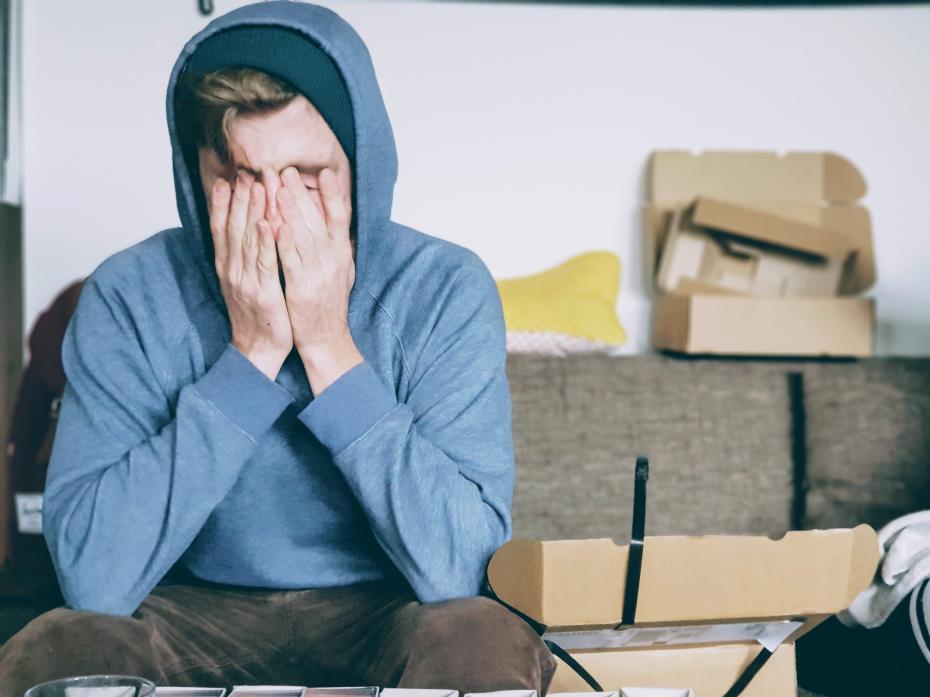
How to manage your busyness to avoid burnout
Overwork and stress are growing issues among academics, particularly following the sudden transition to online teaching. Erin Wilson talks through how she manages her busyness to avoid burnout
This video will cover:
01:03 Learning to spot your “stress tells”&�Բ�����;and developing strategies to de-stress
02:02 The importance of talking
02:34 Being kind to yourself
Hi, no, that sounds like I’m exhausted.
Well, I mean, I don’t look relaxed in my life in general so...I don’t want to say hi. How should I start, then?
Hello, I’m Dr Erin Wilson. I’m an associate professor of global politics and religion at the Faculty of Theology and Religious Studies at the University of Groningen and I’m also the vice-dean and director of education.
A little over 12 months ago, I wrote a piece for Times Higher Education, where I described my own experiences with burnout and talked about some of the strategies that I had developed for getting through burnout, and getting back into full-time work and managing my stress.
Times Higher Ed have asked me to revisit that piece and share a few tips for how to deal with busyness in our daily lives and I’ve put together a list and I’m going to share that with you now.
So, the first one that I think is really important is getting to know your own stress tells. What do you do when you’re really stressed?
Sometimes we’re so stressed, we’ve got so much on our plate that we don’t even realise how stressed we are and how much we’re holding in our bodies.
So for me, I get really irritated and I snap at people and I can’t stop myself, and when I start to do that I know “okay, I need to take a break”.
So then the second one, following on from the first, once you figure out what those stress tells are, work out what works best for you to deal with it.
So for me, I need to get up and go for a walk or run or do some yoga. I need to get outside. What is it that you need to do to help get rid of the stress out of your body? But then also figure out what you need to do over, in your routine, over each day, each week.
So I like to have a regular morning routine so that I don’t have to think too hard when I’m getting out of bed. If I know what I’m doing straightaway, then I just get up and I do it.
The third one is if you’re really struggling, reach out to someone; reach out to a trusted friend or a trusted colleague. Don’t buy into the lie that “everyone else is coping and there’s something wrong with me because I’m not”.
Everyone is struggling and everyone struggles from time to time and we are in a global disease pandemic. It’s okay to struggle. It’s logical and human that you would struggle.
So find someone that you trust and talk to them. Share what’s going on for you and how you’re feeling.
The fourth piece of advice I have, and this might be a tough one for us as academics because a lot of us are high achievers, dare I say over-achievers, but we need to lower our expectations – of ourselves and of other people.
It’s okay to not write that second article or third article, or even the first article. I know there are people who’ve learned a third language or become bakers of of amazing sourdough bread. It’s completely okay if you haven’t.
For me, some days it’s enough that I can get up and get out of bed. If that’s all that you manage to do in a day, it’s okay. So lower your expectations of yourself and others.
Be kind to yourself, learn to say no and just take a breath and take some time for yourself.
And the last one, do something for yourself every day that gives you energy, something that gives you joy. That might not be anything that’s work related.
Maybe you like to play the piano. I like to sing, personally, so I try and make sure that I sing at least once every day. I find running or going for a walk gives me energy as well.
So try and find what it is that makes you smile, that gives you energy, that helps you feel replenished and refreshed. And make sure you do it, even just for five minutes every day.
These are a few of the things that have worked for me. I hope they’re helpful, but obviously you have to figure out what works best for you. So try different things, try some of these things.
You might have other things that work for you. Talk to your friends and colleagues about what works for them.
There’s some really great resources out there that you can check out for ideas. Like, I found listening to Brené Brown’s podcasts really helpful. There’s also a book called Burnout: Unlocking the Secrets of the Stress Cycle [sic] by Emily and Amelia Nagoski that I thought was really great.
Check out also the resources that they have on the Times Higher Ed Campus website.
If you’re really, really struggling, please talk to your doctor. Don’t suffer in silence or try and go through this alone. The most important thing is that you keep up with connections and talk to people.
Reach out if you’re not okay, and it’s okay to not be okay. Look after yourself, be kind to yourself and to each other.
Thanks very much for listening and for watching, and I hope this has been helpful.
This video was produced by Erin Wilson, associate professor of global politics and religion at the Faculty of Theology and Religious Studies and vice-dean and director of education at the
Read Erin Wilson’s thoughts on “How academics can improve their quality of life”&�Բ�����;
Find out more about Brené Brown's podcasts “” and “”&�Բ�����;


